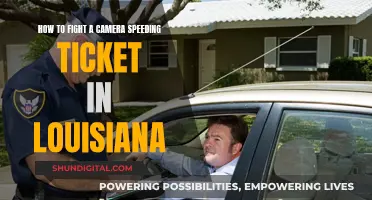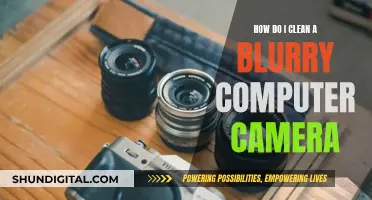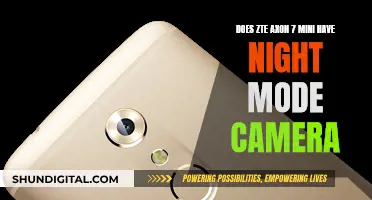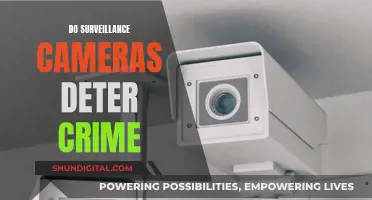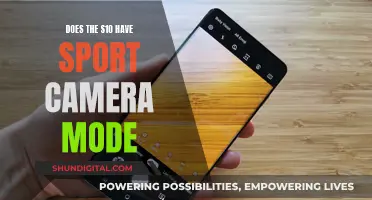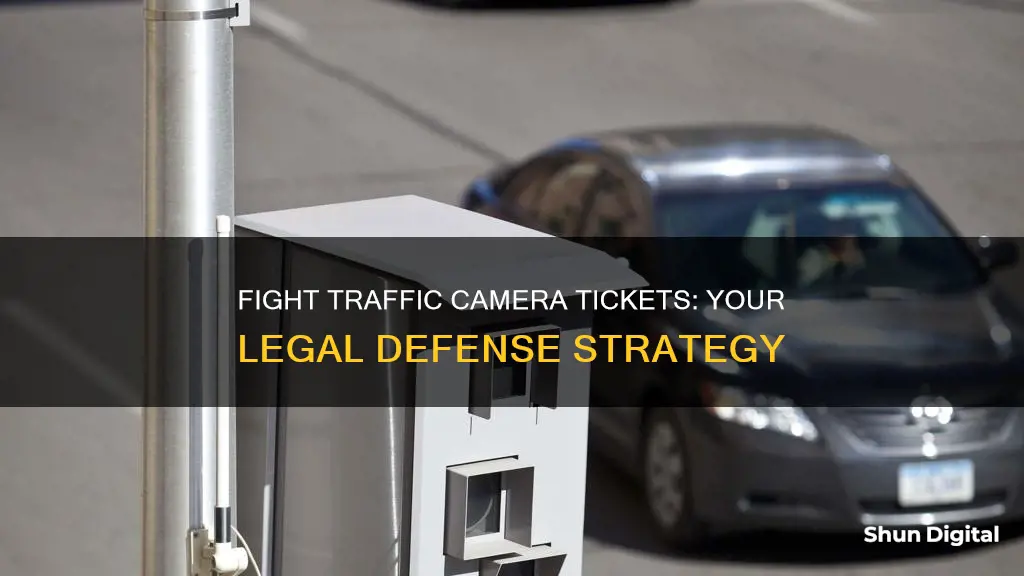
If you've received a traffic camera ticket, you may be wondering if it's worth fighting it. The good news is that traffic-camera appeals are often successful, but many people don't bother to appeal. The process can be time-consuming and may require taking time off during a weekday to appear before a city official. However, if you decide to fight your ticket, there are a few things you can do to increase your chances of success. Firstly, carefully examine your ticket and the associated photos. Make sure that you were actually driving the car when the ticket was issued and try to reconstruct the scene to remember any relevant details. You can also research the applicable laws and see if there are any cases in your city or county about traffic cameras that you can use in your defence. When it's time for your hearing, arrive at the courthouse with any evidence you intend to use and be respectful to the judge and courthouse staff. You can also try to dispute the authenticity of the photographs or argue that the prosecution can't prove you were driving the car. Fighting a traffic camera ticket may seem daunting, but it's definitely possible to succeed if you're well-prepared.
| Characteristics | Values |
|---|---|
| Check ticket details | Check the date, time, and location of the ticket. Confirm you were driving the car when the ticket was issued. |
| Understand the law | Research the applicable law and penalties for violation. Understand the burden of proof. |
| Review evidence | Request and review photos and camera maintenance records. Check for blurriness or lack of identifiable details. |
| Plead not guilty | Plead by mail, online, or in person (arraignment). Do not pay the fine if this is considered an admission of guilt. |
| Request a hearing | Demand a full formal hearing or trial. Attend pre-trial hearings and mediation if required. |
| Gather evidence | Request production of documents, e.g., camera maintenance records and traffic light data. |
| Build a defense | Identify possible defenses, e.g., challenging the admissibility of evidence, disputing authenticity, or attacking lack of evidence. |
| Attend the hearing | Arrive at the courthouse with evidence, present your case, and challenge the prosecution's arguments. |
What You'll Learn

Check the ticket details: date, time, location, and vehicle
When you receive a traffic ticket, it's important to carefully examine the details to understand the nature of the violation and explore possible defences. Here are some key points to consider regarding the date, time, location, and vehicle information on your ticket:
- Date and Time: Confirm the date and time of the alleged violation. This information is crucial as it allows you to verify whether you were indeed driving the vehicle at that specific time. If someone else borrowed your car, you generally cannot be prosecuted for the violation. However, some states, like New York, treat red-light camera tickets as parking violations, holding the registered owner liable regardless of who was driving. Therefore, it's essential to check the specific red-light laws in the jurisdiction where you received the ticket.
- Location: Verify the location where the ticket was issued. This detail is important because it allows you to reconstruct the scene and recall any relevant circumstances. For example, you may have been making a legal right turn on a red light, which could be a valid defence for the ticket. Additionally, some states have specific requirements regarding warning signs for traffic cameras. If the required signage was missing or improperly placed at the location of the violation, you may have a valid defence.
- Vehicle Information: Carefully review the vehicle information on the ticket. Confirm that the make, model, colour, and licence plate number match your vehicle. Sometimes, mistakes can occur, such as misreading licence plates or malfunctioning equipment, which may provide grounds for defence. Additionally, if your vehicle has unique features or modifications, take note of those as well.
Remember, when disputing a traffic camera ticket, it's essential to thoroughly review all the details and explore all possible defences available to you under the specific laws of your jurisdiction.
Focusing on Security: Adjusting Your Store Cameras for Clarity
You may want to see also

Plead not guilty and request a formal hearing
If you want to fight a traffic camera ticket, you must plead not guilty and request a formal hearing. This is how you do it:
First, check the date, time, and location of the ticket. Camera tickets are sent to the owner of the car, not the driver, so make sure you were actually driving the car when the ticket was issued. If someone else borrowed your car, you cannot be prosecuted. However, some states, like New York, treat red-light camera tickets like parking violations, holding the registered owner liable. So, make sure you check the red-light law in the jurisdiction where you got the ticket. If you were driving, try to reconstruct the scene and write down any details you remember. For example, you may have been making a legal right turn on red when the camera took the photo. If you were making a legal maneuver, you should be able to get the ticket dismissed.
Second, make a note of the exact code section you're cited for violating. Read the law and make sure you understand both its elements and the associated penalties. Remember, it is the prosecution's burden to prove each element of your violation – it's not your responsibility to prove that you didn't do it.
Third, review the photos. If the notification included photos, check if your car is clearly identifiable. If the license tag isn't clearly visible, it may be difficult to confirm that the car is yours. Also, if there's no clearly identifiable photo of you in the driver's seat, you can argue that the prosecution can't prove you were driving, especially if you live in a jurisdiction that requires tickets to follow the driver, not the registered owner of the car. If photos were not included with your citation, you may need to wait until after your trial is scheduled to request copies from law enforcement.
Fourth, plead not guilty by mail or online, if possible. Some jurisdictions allow you to respond to the citation either by mail or online, particularly for less serious traffic violations such as speeding or running a red light. Check your citation and make sure you plead not guilty before the deadline, which is typically within 30 days of receiving the ticket.
Fifth, appear at the arraignment. If you have no choice but to appear in traffic court, show up at the date and time listed on your citation. This may also be called a first appearance or a notice hearing, depending on your jurisdiction.
Finally, request a formal hearing. When you plead not guilty, demand a full formal hearing or trial. When you request a full trial, you also may be required to attend other hearings, such as a pre-trial hearing or mediation. Attend those as required, but don't accept anything less than a full dismissal of your traffic camera ticket.
The Fireball Camaro's Unique Front Extension: Why?
You may want to see also

Research the law and build a legal defence
Understand the Applicable Law
First, you need to understand the law that applies to your case. The specific law will depend on the jurisdiction in which you received the ticket. For example, in some states, red-light camera tickets are treated like parking violations, and the registered owner of the vehicle is held liable. In other jurisdictions, the ticket is issued to the driver, not the owner of the vehicle.
Know the Elements of the Offence and the Penalties
Make sure you understand the elements of the offence you are charged with and the associated penalties. Remember, it is the prosecution's burden to prove each element of the offence – you don't have to prove that you didn't commit the offence. Check that the penalties listed on your ticket match those listed in the code section.
Research Possible Defences
Research possible defences that are recognised by law. For example, some states have specific rules about where warning signs must be posted for traffic cameras. If the warning signs were obscured or not present, you may have a defence. Some states also recognise a necessity defence for speeding. For example, if you were speeding to get to the hospital in an emergency, this may be a defence.
Surveillance in England: Cameras in Homes?
You may want to see also

Present your case and evidence in court
If you decide to fight your traffic ticket in court, there are several strategies you can use to build a strong case. Firstly, carefully review your citation as it contains important information that may be useful for your defence. Make sure to take note of the date, time, and location of the ticket, and confirm whether you were actually driving the car when the ticket was issued. If someone else was driving, you may not be held responsible.
Secondly, understand the specific code section you're cited for violating, including the associated penalties. Remember, the burden of proof lies with the prosecution, so they must prove each element of your violation. One possible defence strategy is to challenge the admissibility of any photographs as hearsay, arguing that they are out-of-court statements presented to prove the violation. You also have the right to confront witnesses and question the officer who issued the citation.
Additionally, you can dispute the authenticity of any photographs presented as evidence. For example, if no one from the company that maintains the camera testifies in court, you can object to the use of the photographs due to a lack of foundation. The prosecution must establish that the camera, the system connected to the traffic light, and the traffic light itself were all functioning properly for the photos to be considered reliable evidence.
In some cases, you may also raise other possible defences, such as arguing that you acted out of necessity to avoid harm or that there were no clearly visible warning signs for the traffic camera. Remember to treat everyone in the courtroom with respect and present your case in a calm and professional manner.
Pairing Your Camera: Computer Connection Guide
You may want to see also

Argue that camera photos are inadmissible hearsay
If you've received a traffic ticket, you may be able to argue that the camera photos are inadmissible hearsay. Hearsay is an out-of-court statement presented in court to prove the truth of the matter asserted. In this case, the photo is an out-of-court "statement" that the prosecution is attempting to use to prove you violated the traffic law.
The Sixth Amendment of the Constitution guarantees you the right to cross-examine witnesses. Unless a witness appears who maintains the record and system associated with the camera, you do not have this opportunity.
In some jurisdictions, a red-light camera photo is considered hearsay. However, there are more than two dozen hearsay exceptions. Some courts have fit traffic camera photos into these exceptions, but others have not. Research the issue to find out if this objection is available in your jurisdiction.
If the photo was not included with your citation, you may need to wait until after your trial is scheduled to request copies from law enforcement.
Blocking Surveillance Cameras: Effective Methods to Ensure Privacy
You may want to see also
Frequently asked questions
First, check the date, time, and location of the ticket. Because camera tickets are sent to the owner of the car, make sure you were the one driving the car when the ticket was issued. If someone else borrowed your car, you cannot be prosecuted. Next, plead not guilty by mail or online, if possible. If not, appear at the arraignment and request a formal hearing.
Research the applicable law and look for cases in your city or county about traffic cameras. Aside from the camera itself, there may be other defences that are recognised by law. For example, some states have specific rules about where warning signs must be posted for traffic lights. If the warning signs were obscured or not present, you would have a defence. You can also dispute the authenticity of the photograph. If no one from the company that maintains the camera shows up to testify, object to the use of the photographs for lack of foundation.
This depends on where you received the ticket. In some places, nothing happens. In Iowa, for example, a user on Reddit shared that they did not pay a mailed ticket for a red light camera and nothing happened. However, another user on the same thread said that they had to pay their ticket before they were able to buy their tags.


